Best Goat Breeds to Keep as Pets on a Small Homestead
The best goats for pets typically have gentle temperaments, are easy to handle, and are adaptable to various environments. What is the best breed goats for pets? Well honestly, this can vary a bit depending a number of circumstances. And situations.
People that want meat and fiber from their goats need a certain type of goat. What are the best breeds for various purposes? Let’s find out! Plus, I’ll share our top favorite goat breeds that we keep on our homestead.
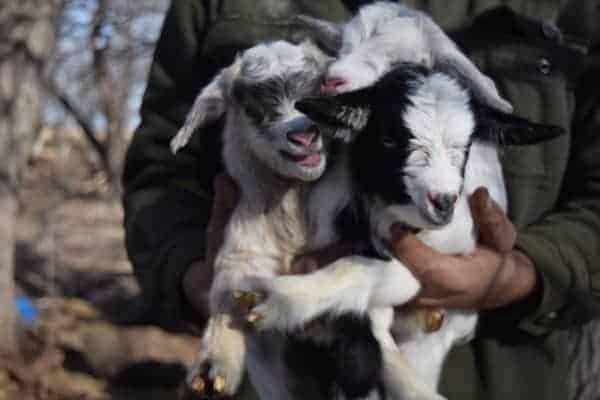
This post has been updated from its original publish date of March 31, 2018. It has been updated to provide better photos and additional helpful information.
When choosing a pet goat, consider factors such as space requirements, your level of experience with goats, and your ability to provide proper care and attention.
Additionally, be sure to interact with the goats before making a decision to ensure they have the temperament you’re looking for in a pet. Because it is kind of a big deal and farm animals are a long-term commitment.
Best types of goats to keep for pets
Our goats have become little members of our family and I’ve become quite attached to several of them. Besides being adorable, goats make great pets. This list isn’t all inclusive to what you can keep as pets.
Rather, I’m sharing my favorite goat breeds that we currently have on our homestead. There are so many different goat breeds that are used for a variety purposes.
Some of our favorite breeds are quite popular in small farms and homesteads across the United States. Some breeders choose specific types of goats for their milk production. And others prefer fiber goats or some specifically for meat production.
This post will cover some of these topics briefly, but I am first focused on the different types of goats with gentle personalities that make great additions to family farms.
Something else to consider if you want to raise males, females, or both for breed purposes.
Related: 10 Best Dairy Goat Breeds
#1 Pygmy Goats
Pygmy goats are one of the smaller breeds of goats known for their friendly disposition and compact size. They are excellent climbers and love to explore their surroundings. These miniature goats are a great option for a small farm or homestead.
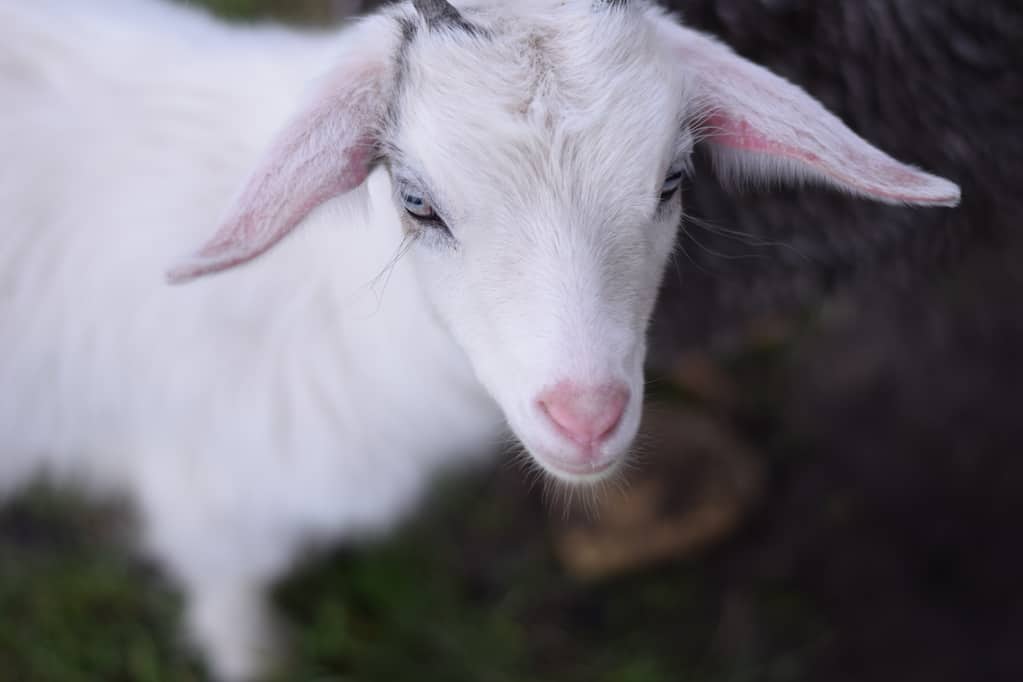
Pygmy goats are my absolute favorite goat to keep as a pet. They are a miniature breed, super friendly and allow for snuggles. All total wins in my opinion.
We have never had a bad experience with the demeanor of a pygmy goat. Which helps make these breeds great for young children and getting them acquainted with chores.
#2 Nigerian Dwarf Goats
Nigerian Dwarf goats are small in size, making them perfect for smaller spaces. So, if you have limited space, these are a great choice! They’re friendly, affectionate, and have playful personalities.
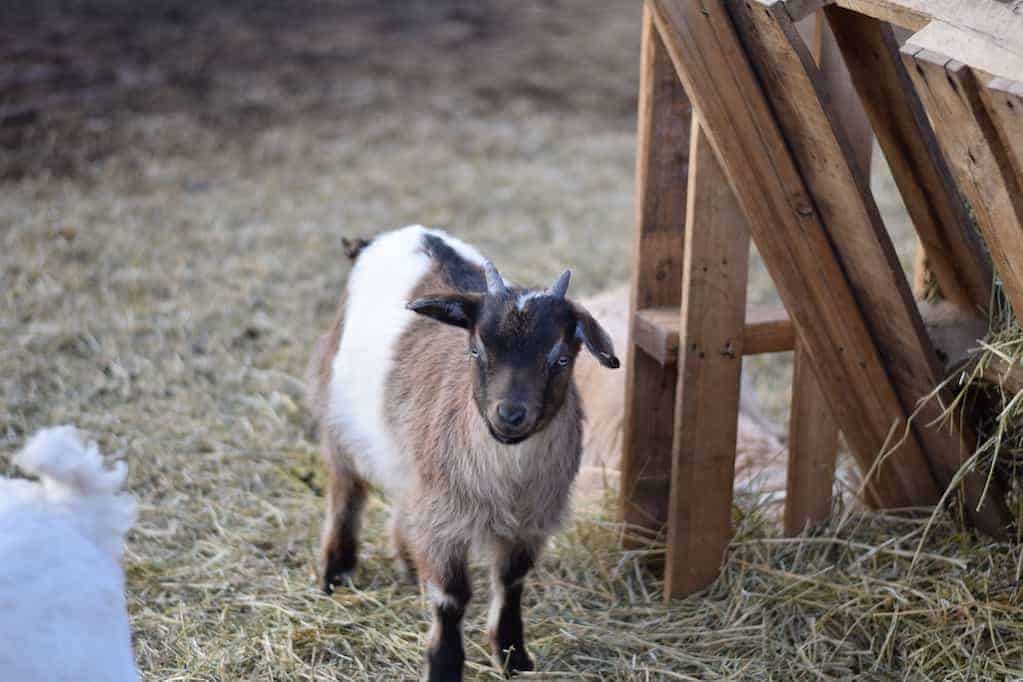
This is another small size breed that makes a great addition to a small farm and is a favorite among many homesteaders.
In addition to their cute features, they are a great source of milk if you want them to serve that purpose on your homestead.
These goats originated in West Africa and are one of the most domesticated goat breeds.
#3 Alpine Goats
Alpine goats are a popular dairy breed known for their excellent milk production and adaptable nature. They have distinctive upright ears and come in a variety of colors, making them both functional and visually appealing additions to a farm or homestead.
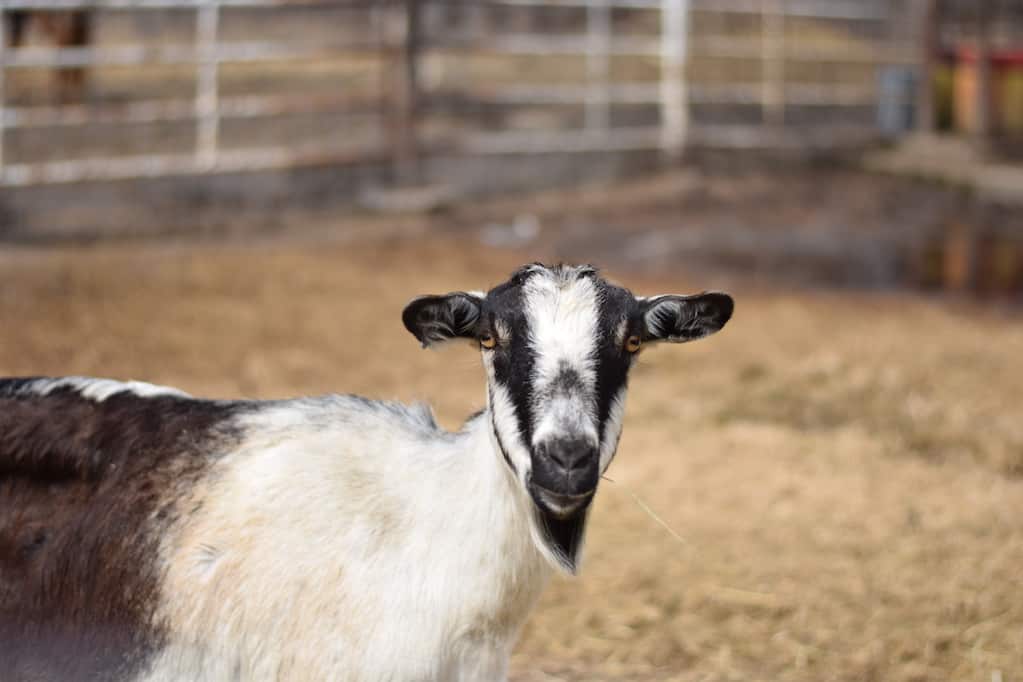
Goats have incredibly entertaining personalities. And the leader of our pack is Miss Holly, such a smart and curious goat!
Our experience with Alpine goats has always been entertaining and they’re probably the most intelligent goat breed we own.
Alpine goats are an amazing dairy source for those who don’t have room for a dairy cow and are quite popular milk producers.
Like their name suggests, they came from the Alps and brought from Switzerland to the Americas and France.
Find more about what I love about Alpine Goats here.
#4 LaMancha Goats
La Mancha goats are recognized by their unique ears (or lack thereof). They are calm, docile, and have a reputation for being good milk producers, which can be a bonus if you’re interested in goat milk.
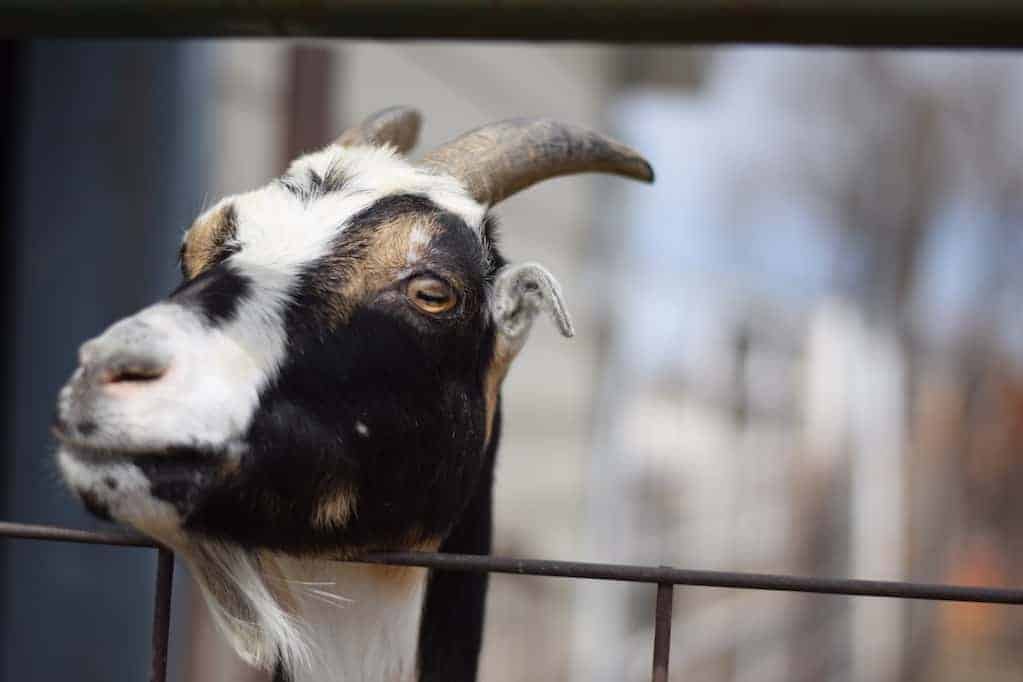
Want to save this?
The LaMancha goat is another great dairy option for a small homestead. They produce a lot more milk than other goat breeds with a higher butterfat. And they also make excellent cheese and butter from their milk.
Generally, the La Mancha goat breed is calmer, quieter, and has an overall gentle demeanor and temperament. They are a great medium sized goat that originated from the West Coast of California and Oregon. They have relations to a similar breed from Spain.
These goats are known for their unusual ears sometimes referred to as gopher ear.
#5 Boer Goats
Boer goats are a meat breed originating from South Africa, prized for their fast growth rate and high-quality meat. They have distinctive white bodies with a red head and are known for their hardiness and adaptability to various climates.
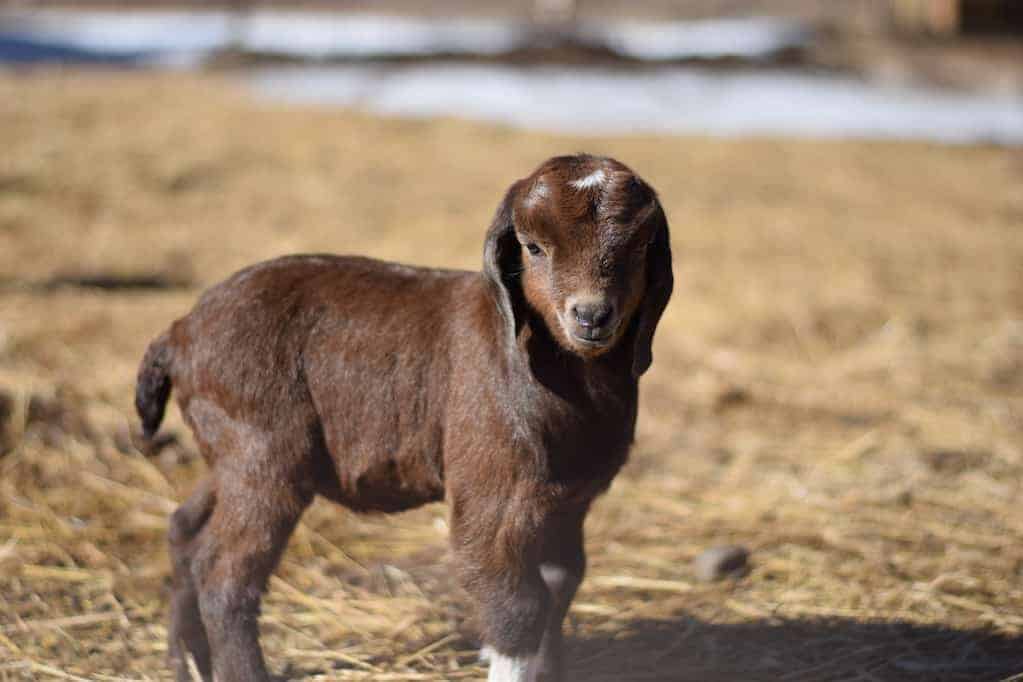
Initially, I wasn’t sure if I would add this goat to this list. I’m not really a fan of them personally. But my husband loves this breed. I mean the babies are adorable and I’ve grown to love some of our does.
Boer goats make an excellent choice for a 4H show goat because of their large body build. So that’s something to consider if you have children interested in getting involved in that program.
I think my main dislike is their body build and also our Boer buck. Bucks generally stink, but have you ever smelled a Boer buck? They’re the worst. Ha. Great for breeding time, but definitely not a pleasant scent.
These hardy meat goats were developed in the early 1900s in South Africa. Andare often used for their quality of meat production. Another option to consider if that is a goal for your homestead.
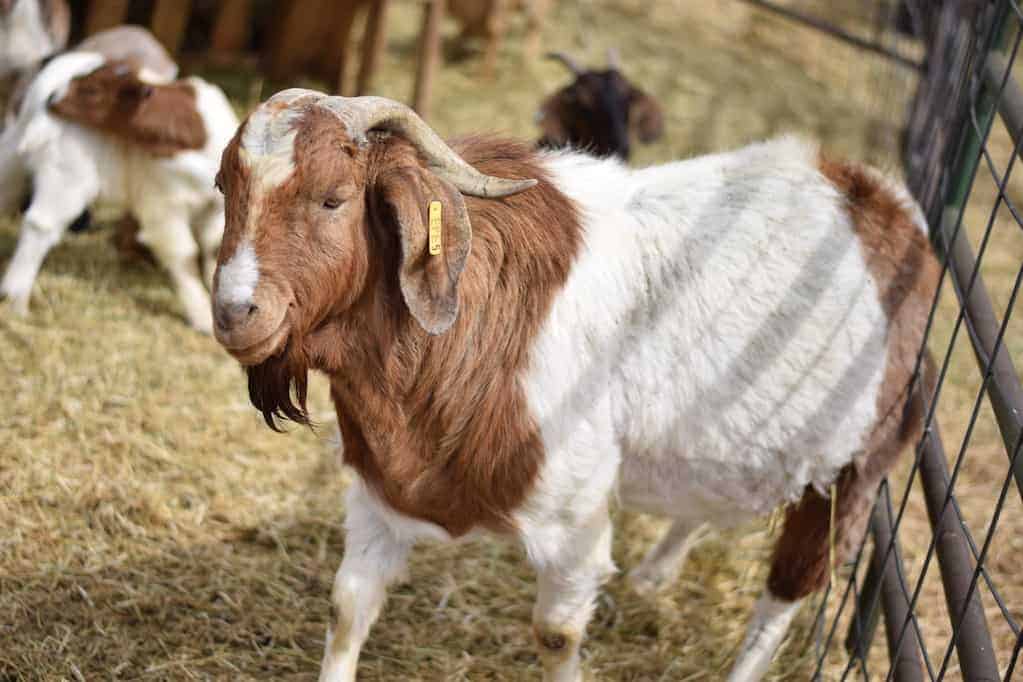
#6 Nubian Goats
Nubian goats are known for their long, floppy ears and outgoing personalities. They are affectionate and enjoy human interaction, making them great pets for families. mini Nubian goats are a great option for those without much space.
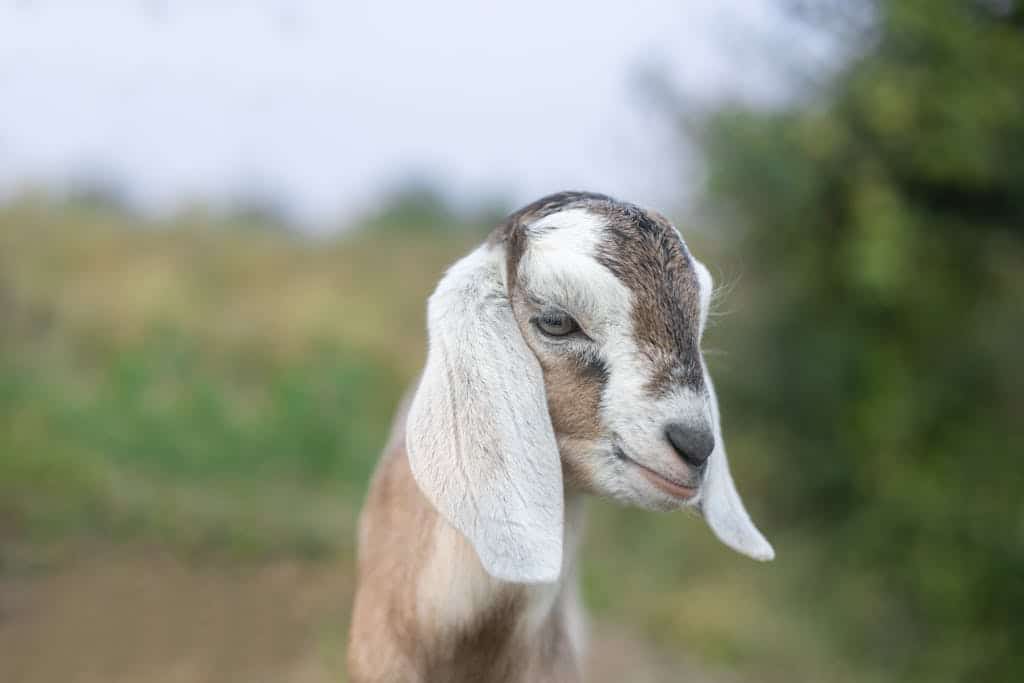
#7 Miniature Silky Fainting
These goats are a variation of the popular fainting goat breed but with long, silky coats. Despite their tendency to “faint” when startled, they are gentle and easygoing, making them suitable for pet owners.
A Few More Tips When Planning on Adding Goats as Pets
Goats are companion animals and should always have a buddy or they’ll get lonely. Which could lead to depression, behavioral and other health issues.
I always recommend that people purchase goats in pairs for this reason. Other animals can make a great friend, too. Such as another smaller breed of livestock.
If you want a tame and mild mannered goat, handle them often. Start when they’re young and give them snuggles, play with them, give your goats treats. And just spend time in their pens often.
Wethers make better pets than a buck and don’t have the stink of a billy! But doelings are also a great choice!
If you are new to raising goats, I recommend you check out this post about raising goats for beginners.
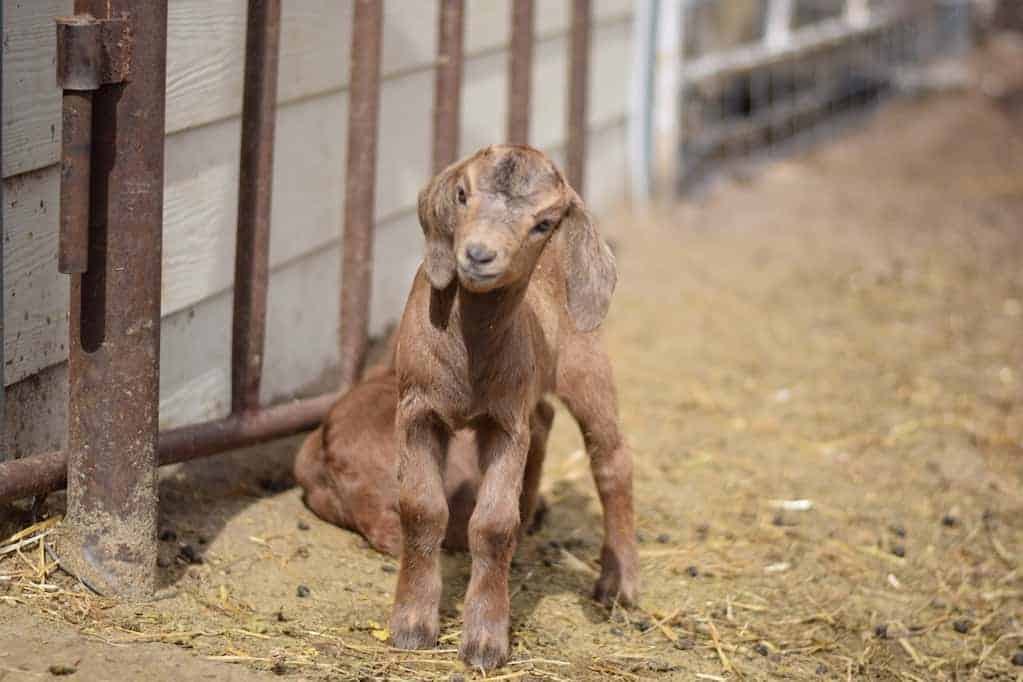
More Goat Breeds to Consider
Over the many years of raising goats, we’ve come across some really great goats. We have a love for so many great breeds and I want to briefly mention a couple of other you may want to look into.
- Toggenburg goat
- Nubian goats
- Saanen goats
- Oberhasli goat
- Sable goat
- Kiko goat – another of my husband’s favorites!
Some of these Swiss breeds – Alpine, Oberhasli, Saanen, Toggenburg do really well in cooler climates.
The Angora goat and Nigora goats are good cashmere producers among other goat breeds including Pygmy and Myotonic goat, or Tennessee Fainting goats.
Or a Pygora which is a cross of Pygmy and Angora are something to consider. Even some dairy breeds, such as Toggenburg, Saanen, and Nubian, can produce decent cashmere.
So no matter what your needs are, there is sure to be a goat breed for you and your home!
Basics of Caring for Goats (for beginners)
For beginners, caring for goats involves several key aspects.
- Shelter: Provide a sturdy shelter that protects goats from extreme weather conditions like rain, wind, and excessive heat or cold.
- Fencing: Secure your property with appropriate fencing to prevent goats from wandering and protect them from predators.
- Feeding: Offer a balanced diet consisting of high-quality hay, fresh water, and possibly grain or goat-specific feed depending on their nutritional needs.
- Healthcare: Schedule regular check-ups with a veterinarian, deworm goats as needed, and vaccinate them against common diseases. Trim their hooves regularly to prevent issues like overgrowth and hoof rot.
- Socialization: Goats are social animals, so provide them with companionship by keeping at least two goats together. Spend time interacting with them daily to build trust and bond with them.
- Enrichment: Provide opportunities for mental and physical stimulation through toys, climbing structures, and access to pasture for grazing.
By prioritizing these aspects of care, beginners can ensure the health, happiness, and well-being of their goats. Additionally, learning from experienced goat owners and resources such as books, online forums, and local agricultural extension services can be invaluable for acquiring knowledge and skills in goat care.

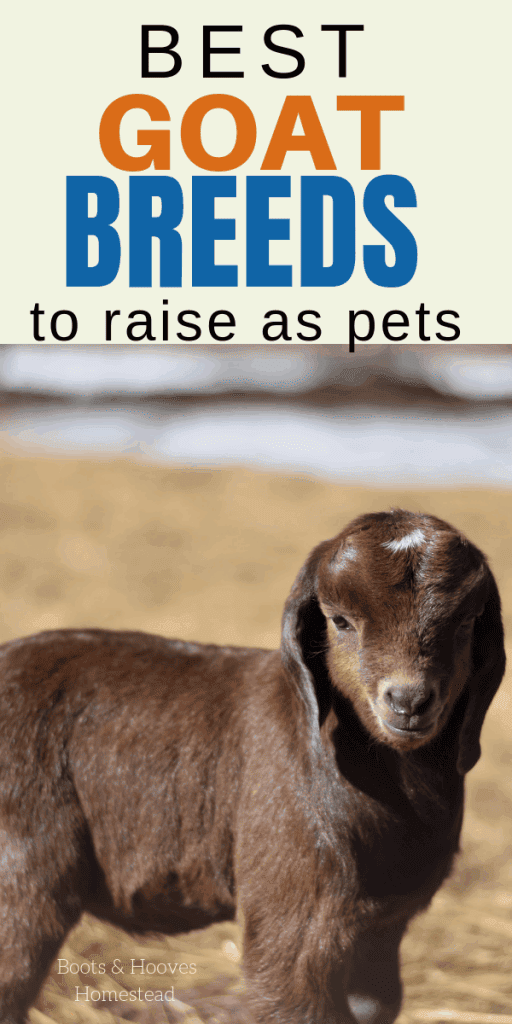

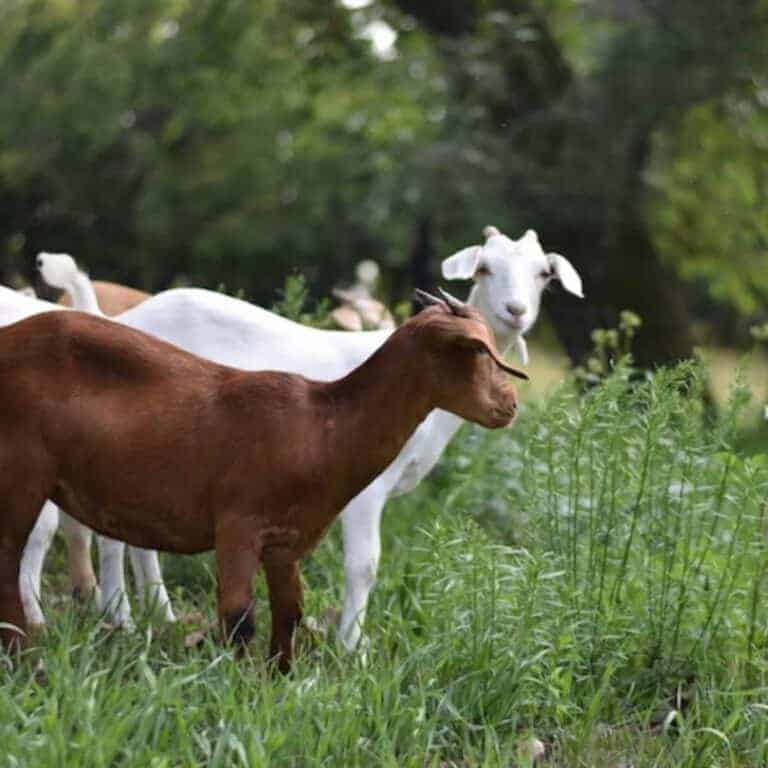
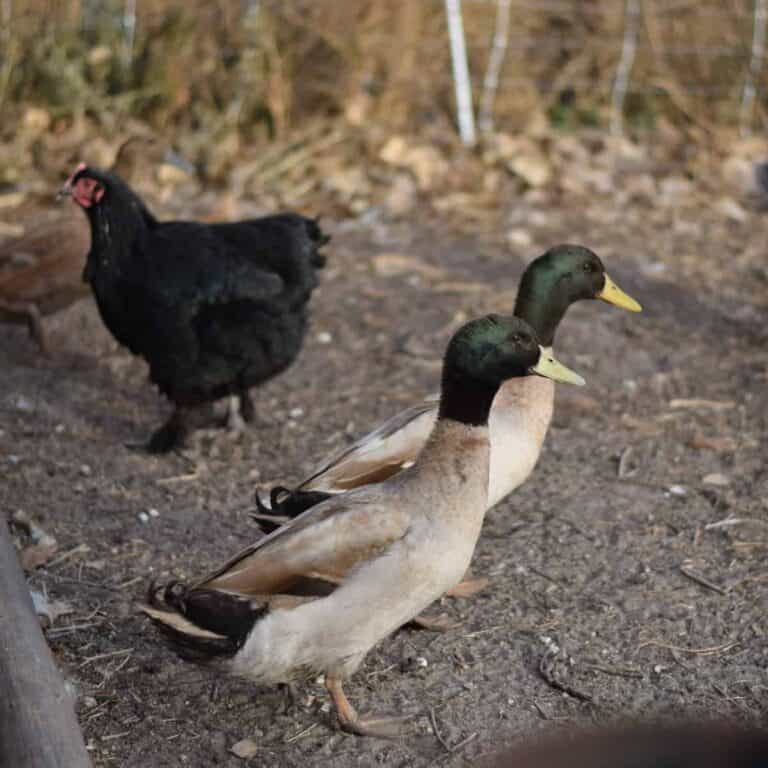
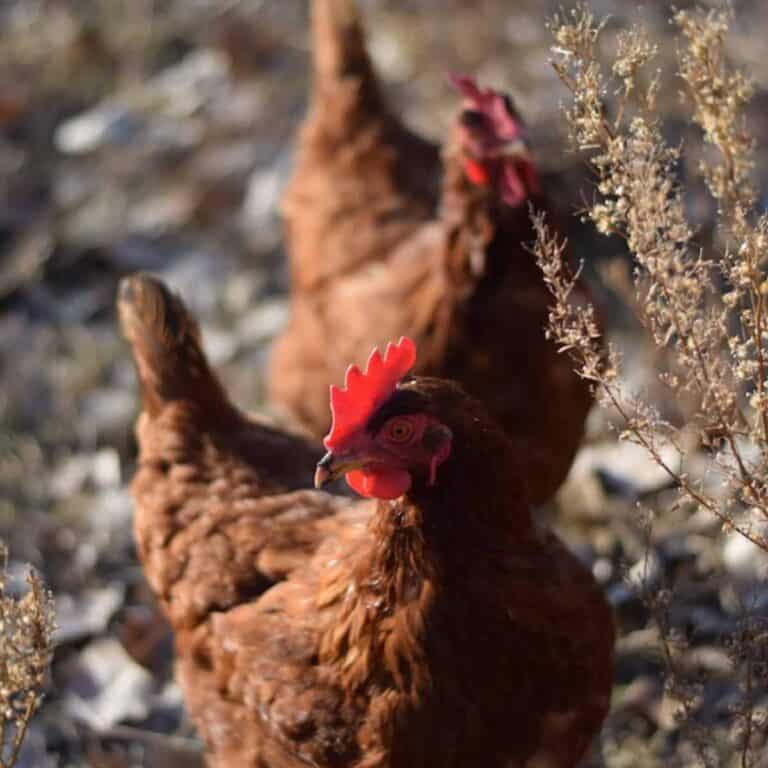
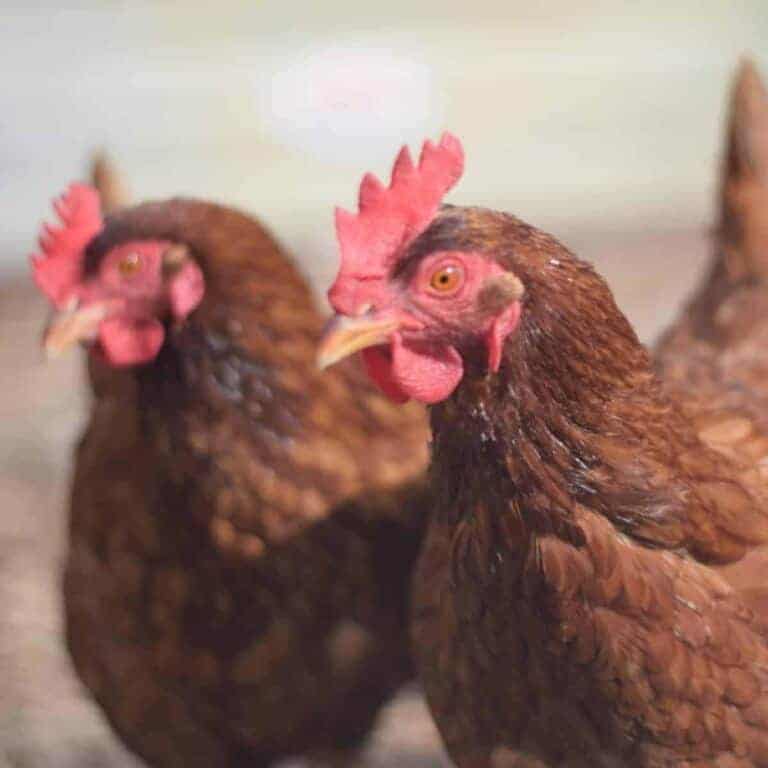
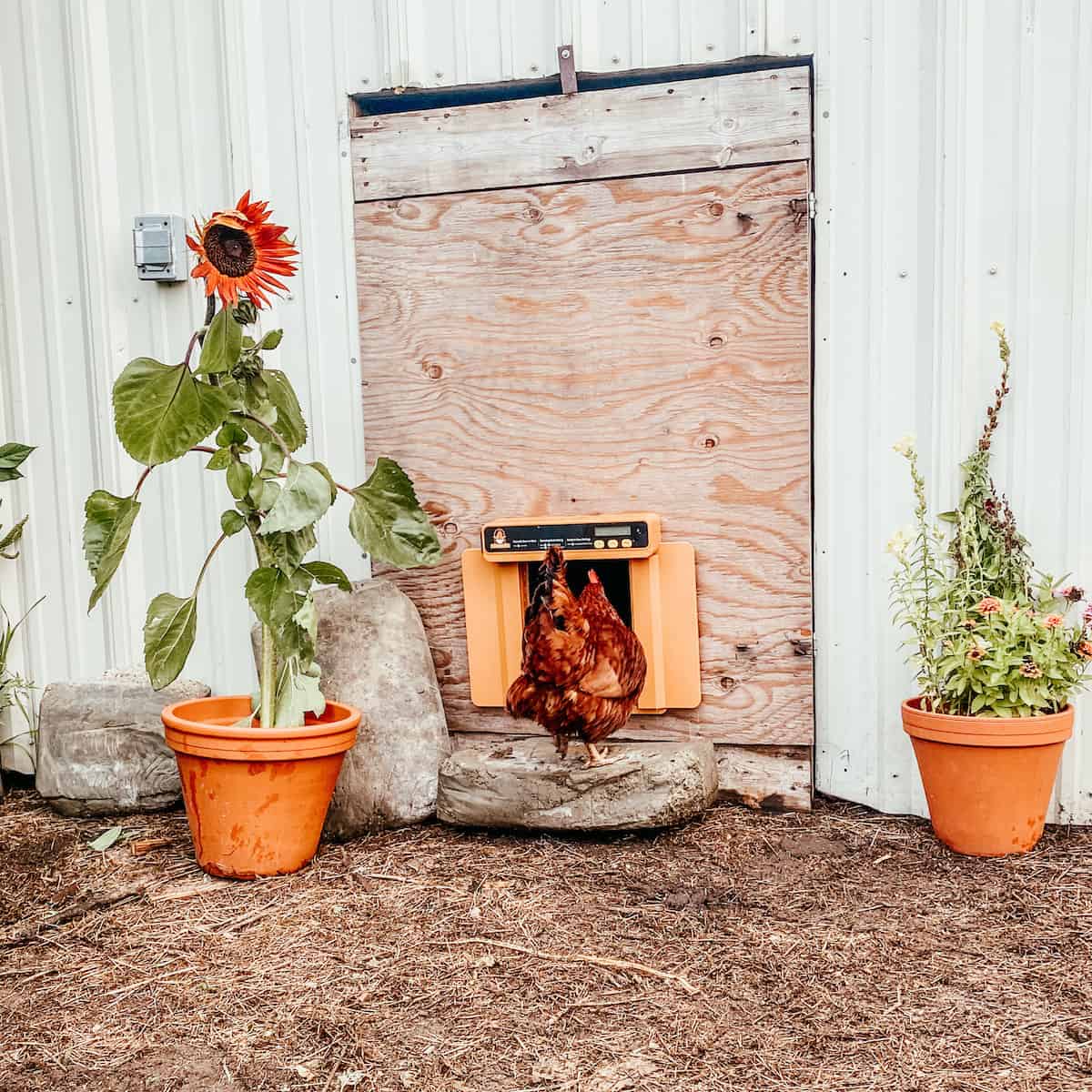
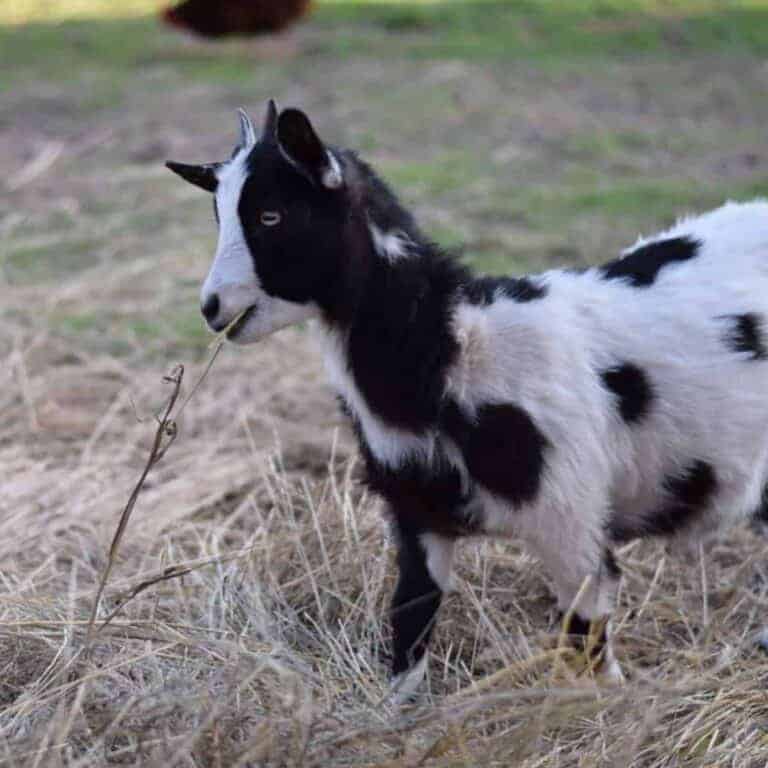
Do you think the lamantia goat is the quietest?
Actually…ours are pretty vocal. We find our Pygmy and Alpine goats to be some of the quietest.
Do you know Where can I get Pgymy goats in Arizona.
I would search online for breeders first. If you can’t find any local to you, another option is through an auction. Just note that there could be risk for bringing home one with illnesses. They have to be checked out by a Vet in our area before they go to an auction, but sometimes things are missed. Hope that helps! 🙂
If I bought a female goat, does that mean she will make milk?
I just want a goat for the kids and to eat my blackberries down. I don’t want to milk it as well.
Thanks
Matt
Not necessarily. A doe will only need to be milked if she has reached maturity and has become pregnant. Even then, after kidding, the baby goat could take care of that if there weren’t complications and it wasn’t a bottle kid. If you don’t plan on breeding, you won’t need to worry about milking. 🙂 Also something else to keep in mind, goats are companion animals and do best if they have another buddy goat to keep them happy. They tend to get lonely otherwise.
Can any goats live indoors as pets if raised as such?
I’m sure that it could be possible. However, I wouldn’t recommend keeping goats indoors. They are natural foragers, so I can’t imagine they would be happy staying indoors for long term. They may appreciate the extra attention. But they will also create a mess and probably break or chew on various things in the home.
If this is really your goal with raising goats, the smaller breeds like a Pygmy or Nigerian Dwarf are probably better options. 🙂
If you don’t want to breed, do you need to spay/neuter?
I would love to have as pets.
I’m sure that it could be done, but it may be challenging finding a Vet that would do this procedure. You should not have a problem with breeding if you only raise does or raise a wether with your does. They really do make great little companions and pets! 🙂
Is it possible to have a small herd (2-4) goats that were ONLY wethers? Or do you have to have does too? We are looking into getting goats to have as pets/teach our kids about responsibility/help clear brush…but aren’t interested in breeding or milking. I had read that does aren’t great in areas with a lot of blackberries because the thorns can tear up their udders.
Yes, you absolutely can. Some factors to consider if you are raising all wethers: all males may not be as tame as if you were to raise all females. If you can start with them when they are young and work on training and handling them often, it will make a lot of difference in how they will interact with you and each other. Bottle feeding them would help with this, too. Some breeds will also do better than others if you kept only wethers. I would think the gentler of the bunch are probably Pygmies & Alpines. But that can vary on a lot of things. And I’m speaking from our personal experiences. 🙂
We have two little boy brothers that are Nigerian pygmy goats and they’re great. They’re loving and gentle. We got them at 6 weeks and spend time with them every day. I live in Kentucky and we have a vet locally that does neuter them at 5 months. He’s one of the only vets locally that deal with rumenants. Llamas, goats, etc. I would think people new to owning goats could ask their local vet if they know of any vets that deal with goats.
That’s a great idea! Thanks for sharing 🙂
Considering getting a few (2-3) and was wondering if you have gender recommendations… Same? If so, which gender? Different? If they are siblings will they attempt to breed (assuming they would…)??
Our experiences in raising goats as pets are that the does are the best. Really, you could keep any of them, but they are usually much more tame. And that does have a lot to do with the breed and training/handling the goats from the time they are young. Wethers and does would do great together if siblings because a related buck/billy would definitely try to breed with their sibling.
Just curious . . . Nubians aren’t on the list. I just bought a Nubian / Nigerian Dwarf cross for our family. Am I going to be in over my head?
Nubians are great, too! I have many friends who raise those and love them. We just haven’t raised them over here, so I didn’t include it in my list. Good luck with your new goat! 🙂
I get my goats from the local county fair 4h kids. If you buy them at the auction it is more expensive but as a business we can give to the kids and then they know they aren’t going to get eaten. But a cheaper option you can do is a “buy back” meaning another business bought the goat but it will go to slaughter you get get them at fair market valve and these goats are tame because the 4h kids have been working with them for show and the wethers are always friendly and great pets. That’s the best way to go and the Boer goats are great pets. All of my goats have come from the 4h kids except our buck and he came from a small farm not far from us where a little girl is learning to run a goat business. The 4h kids appreciate people taking their goats home especially the smaller kids in 4h until they learn that what happens in life. But I really try and help the kids know their goats will have a great long life on my farm and they are always welcome to come out and visit if they ever want too. You also get to know the kids and you see the dedicated ones year after year that’s the most amazing part of it. I love it and will keep going for as long as I can afford to keep buying them. Good luck with your goats.
My favorite goat ever was a Toggenburg/pygmy cross. Never did figure out how she produced that much milk in that small body!
Im very new at this thanks for the info
I had a bore goat and started out healthy but after a while started loosing weight
I have rescued a LA Mancha, he is a wether with horns about 120 lbs.
I know nothing about goats, but I’m trying to learn. He is with 2 horses and a pony. First question do I need to put him up at night? I do have a outdoor pen that I can build a shelter in. My plans for the winter when it is real cold is to build a stall in the barn for him. We do have coyotes sometimes. SECOND QUESTION Do I need to get him a companion goat? What kind of goat? Can I put another wether with him?